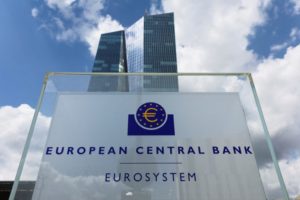The Unusually Increased Interest Rates by the European Central Bank
The European Central Bank (ECB) raised interest rates unprecedentedly and hinted at further increases in the future.
The ECB raised the rate on deposits from 0 to 0.75%, and the refinancing rate to 1.25%, the highest level since 2011. Rates are expected to rise in October and December as well.
Although the EU economy is heading for recession, the bank’s priority is to fight the record 9.1% inflation and to hold the devalued EUR.
Against the backdrop of the energy crisis, the EUR is at a 20-year low against the USD. The EUR depreciated after the Russian energy giant “Gazprom” suspended the supply of gas to Europe through the Nord Stream 1 pipeline for an indefinite period.
Supply disruptions are a heavy burden on the energy sector and economy of European countries awaiting a cold winter – natural gas prices on the continent are reaching record levels, the cost of electricity is increasing, and the high level of inflation is mainly due to this.
The tightening of monetary policy hinders lending and leaves less money in circulation, which has a corresponding effect on the inflation level and exchange rate but also slows down the economy. That is why the ECB will have to strike a balance between the two.
Many economists believe that this bank action is overdue and care for this should have started even during the pandemic. With this move, the European Central Bank is approaching the aggressive policy of the Federal Reserve, which has already raised rates three times.
The European Central Bank also changed its forecasts, according to which consumer prices will increase by 5.5% next year, and will be 2.3% in 2024, slightly higher than the target of 2%. As for economic growth, the forecast for 2023 is 2.6%, and for 2024 it is 1.4%.


